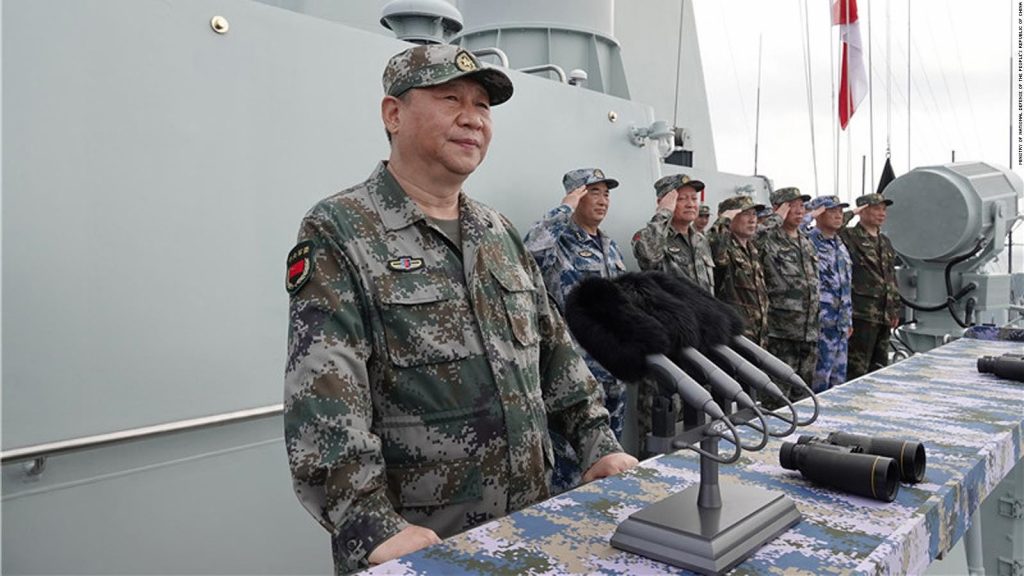Beijing: China Friday hiked its defence budget for the first time to more than USD 200 billion, over three times higher than that of India, maintaining a single-digit growth for the sixth consecutive year with a 6.8 per cent increase in 2021.
The hike in defence spending was announced by Chinese Premier Li Keqiang on the opening day of the National People’s Congress, China’s Parliament, amidst a military standoff with India in eastern Ladakh and growing political and military tensions with the United States.
This year’s planned defence spending will be about 1.35 trillion yuan (about USD 209 billion), state-run Xinhua news agency reported, adding that the annual defence budget maintains a single-digit growth for a sixth consecutive year.
China’s defence budget is about one quarter of the US figure, which is USD 740.5 billion for the 2021 fiscal year, it said.
Friday’s increase is over three times higher than India’s defence budget of about USD 65.7 billion (including pensions).
Last year, China allocated 1.268 trillion yuan (about USD 196.44 billion), according to the state-run Global Times.
In his 35-page work report outlining China’s achievements in 2020 and tasks for 2021, premier Li described last year as a “major success” for the armed forces without mentioning China moving over 60,000 well-armed troops who were mobilised for annual exercises, to contentious areas like Pangong Tso in eastern Ladakh, prompting India to match the People’s Liberation Army’s (PLA) mobilisation which led to an over eight-month long standoff.
After lengthy rounds of talks, the two sides simultaneously withdrew troops from Pangong Tso area while talks are on for the withdrawal of troops from the rest of the areas.
“Last year, major success was attained in the development of national defence and the armed forces. Our people’s forces, with complete competence and fine conduct, safeguarded China’s national security and participated in epidemic control,” Li said in his work report.
He also asserted that “absolute leadership” over the two million-strong PLA, the largest in the world, will be vested with the ruling Communist Party of China (CPC) and its “core leader” and President Xi Jinping who heads the all-powerful Central Military Commission (CMC), the overall high command of the PLA.
“This year, we will thoroughly implement Xi Jinping’s thinking on strengthening the armed forces and the military strategy for the new era, ensure the Party’s absolute leadership over the people’s armed forces, and strictly implement the system of ultimate responsibility resting with the chairman of the Central Military Commission.
“We will, bearing in mind the goals set for the centenary of the People’s Liberation Army, continue to enhance the political loyalty of the armed forces, strengthen them through reform, science and technology and the training of capable personnel, and run them in accordance with the law,” he said.
Li said to boost military training and preparedness across the board, make overall plans for responding to security risks in all areas and for all situations, and enhance the military’s strategic capacity to protect the sovereignty, security and development interests of the country.
“We will improve the layout of defence-related science, technology and industry, and enhance the defence mobilisation system.
“We in government at all levels should vigorously support the development of national defence and the armed forces, and conduct extensive activities to promote mutual support between the civilians and the military, so as to forge an ever-closer bond between the people and the military in the new era,” the premier said.
The increase of the defence budget, amid massive expansion of the military hardware, including building of more aircraft carriers in addition to the two newly-built ones, also comes amidst the increasing tensions between China and the US over Taiwan and the South China Sea (SCS) besides growing discord between the two over Tibet, Xinjiang and Hong Kong.
Last year, a key conclave of the CPC had finalised plans to build a fully modern military on par with the United States by 2027, which is also the centenary year of the PLA.
The PLA this year has also announced a 40 per cent increase in salaries to attract more talent.
China is the second biggest spender of defence after the US.
Defending the increase in defence budget, Zhang Yesui, spokesperson for the NPC, told the media here that China’s efforts to strengthen the national defence do not target or threaten any country.
Whether a country poses a threat to others depends on what kind of defence policy it pursues, he said, adding that China is committed to the path of peaceful development and adheres to a defence policy that is defensive in nature.
As the world’s second largest economy and the most populous country, China’s planned defence spending per capita in 2021 will be less than 1,000 yuan (USD 154), the Xinhua report said.
China applies strict mechanisms of fiscal allocation and budget management on its defence expenditure, which is mainly assigned to personnel, training and sustainment, and equipment, it said.
China has voluntarily downsized its armed forces by over four million troops since 1978, according to a white paper released in 2019.
PTI
